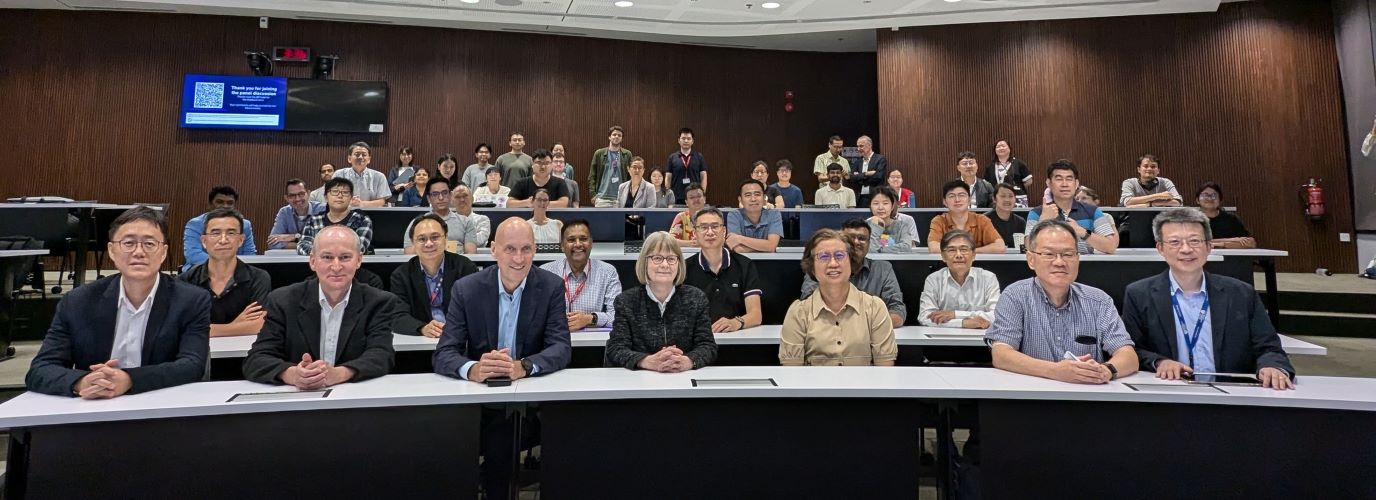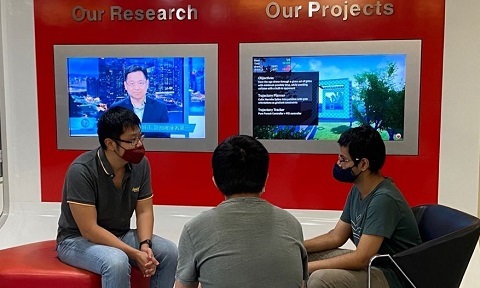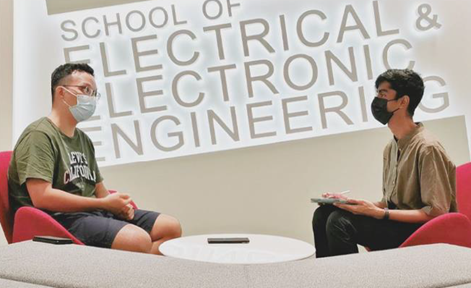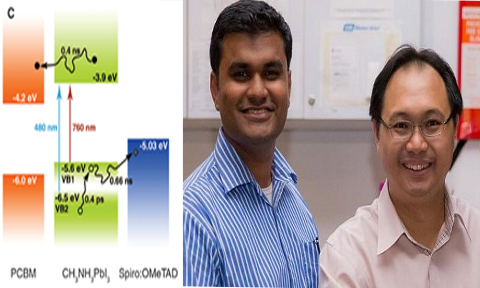Panel Discussion: Navigating the Funding Landscape of Programmatic Grants
Qi Yuxia| NTU School of Biological Sciences Graduate Students' Club
On the afternoon of 25 April 2025, the Institute of Advanced Studies (IAS), NTU, in collaboration with the Research Support Office (RSO), NTU, hosted an engaging panel discussion titled "Navigating the Funding Landscape of Programmatic Grants." The event's primary goal was to equip researchers with valuable insights and effective strategies to secure significant funding, specifically targeting large-scale, multidisciplinary grants that typically range from 5 to 20 million dollars. By demystifying Singapore’s intricate research funding landscape, the seminar sought to foster a supportive and collaborative research culture within NTU.
Opening the discussion, Prof Fung Tat Ching, Director of NTU's Research Support Office, warmly welcomed participants and articulated the critical purpose and relevance of the session. He highlighted the importance of mastering the complexities involved in securing programmatic grants. Prof Fung underscored NTU’s proactive role in equipping its researchers with essential knowledge and resources, demonstrating the university's commitment to supporting impactful and innovative research through robust funding initiatives and effective collaboration.

The panel (from left to right): Moderator Prof Fung Tat Ching (Director, RSO, NTU; MoE Tier 3 Awardees Assoc Prof Elbert Chia (SPMS, NTU) and Prof Mary Chan (CCEB, NTU); Prof Dame Lynn Gladden (University of Cambridge); Prof Ernst Kuipers (Vice President of Research, NTU); and NRF CRP Awardees Prof Gerhard Gruber (SBS, NTU) and Prof Wang Qijie (EEE, NTU).
The discussion featured a distinguished panel comprising leading researchers recognised for their substantial achievements in securing major programmatic grants. Prof Dame Lynn Gladden, from the University of Cambridge and former Vice-Chancellor for Research, contributed her vast experience in managing large-scale research initiatives and funding councils, including her leadership at the UK's Engineering and Physical Sciences Research Council (EPSRC). Prof Ernst Kuipers, NTU’s Vice President for Research, provided insights based on his substantial experience in healthcare research and administration, highlighting significant multinational projects funded by the European Horizon Fund.
Joining them were NTU’s own accomplished grant recipients, including Prof Mary Chan, recognised for her multiple MoE Tier 3 grants, Assoc Prof Elbert Chia, experienced in securing numerous programmatic grants, Prof Gerhard Gruber, a recipient of substantial NRF Competitive Research Programme (CRP) funding, and Prof Wang Qijie, known for multidisciplinary projects funded through NRF CRP. Their presence provided attendees with diverse, real-world perspectives on navigating and securing major research grants.
Prof Gladden initiated the discussion by reflecting on global trends in collaborative research, underscoring their significance in addressing complex issues such as sustainability and healthcare. She thoughtfully balanced this perspective by stressing the continued importance of smaller grants for nurturing early-career researchers. Her insights resonated deeply, emphasising the necessity of a diversified funding strategy to support researchers at all career stages.
Additionally, the panelists also shared practical insights on securing competitive research funding, highlighting the importance of clear objectives, interdisciplinary collaboration, and alignment with strategic goals. Prof Kuipers emphasised the role of stable, multinational funding; citing the European Horizon Fund, and praised Singapore’s foresight in research investment, setting an example globally. Prof Mary Chan detailed the rigorous process behind her successful MoE Tier 3 grants which focused on advanced chemical engineering research, stressing the need for preparation and clearly articulating the research objectives potential impact on society and industry.
Prof Wang Qijie offered advice on interdisciplinary projects in photonics and quantum tech funded by NRF CRP, with specific advice on how to cultivate robust, interdisciplinary collaborations and how persistent peer engagement and regular proposal refinements contribute to his team’s success. Prof Gruber highlighted improved transparency and communication between researchers and funders, noting that initiatives like feedback sessions and workshops that allow researchers to communicate their challenges and align their proposals with the strategic goals of funding agencies, have significantly boosted proposal success rates.
The panel discussion culminated in a lively Q&A session marked by robust audience participation. Notable questions included concerns about balancing fundamental research with commercial pressures and the role of artificial intelligence in enhancing proposal appeal. Prof Gladden addressed the former by emphasising the foundational role of fundamental research in underpinning commercial innovation, receiving appreciative acknowledgment from the audience. Her answer resonated well, eliciting nods and appreciative murmurs from the audience. Another intriguing question involved the potential impact of artificial intelligence on grant applications and funding preferences. Prof Kuipers responded with enthusiasm, highlighting AI's role as a powerful tool rather than a mandatory criterion. He clarified that strong proposals need not necessarily include AI, but incorporating cutting-edge methodologies could certainly strengthen a project’s appeal. This response sparked animated discussions and positive reactions from attendees.

Lively Q&A sparks discussions on research, commercialisation, and AI innovation.
Additionally, Prof Mary Chan responded to a query from a young researcher about effectively building a competitive research team. She stressed the importance of not just individual excellence but also team synergy, advising early-career researchers to carefully select collaborators who complement their strengths and create a harmonious working environment. The practical nature of this advice drew appreciative applause from younger participants.
The discussion concluded positively, with attendees expressing genuine appreciation for the insights and practical guidance provided by the panelists. Prof Fung Tat Ching closed the event by reaffirming NTU's ongoing commitment to supporting researchers in their endeavors to secure impactful funding.
In summary, the panel effectively highlighted key factors such as collaboration, clarity, communication, and consistency, establishing these as fundamental components for successfully navigating Singapore's competitive landscape of programmatic research grants. The enthusiastic and interactive atmosphere left participants inspired and confident, ready to apply these valuable insights to their own research initiatives.

Group photo of panellists and audience after a robust session discussing key insights on collaboration, communication, and consistency essential for navigating Singapore’s competitive research grant landscape.





